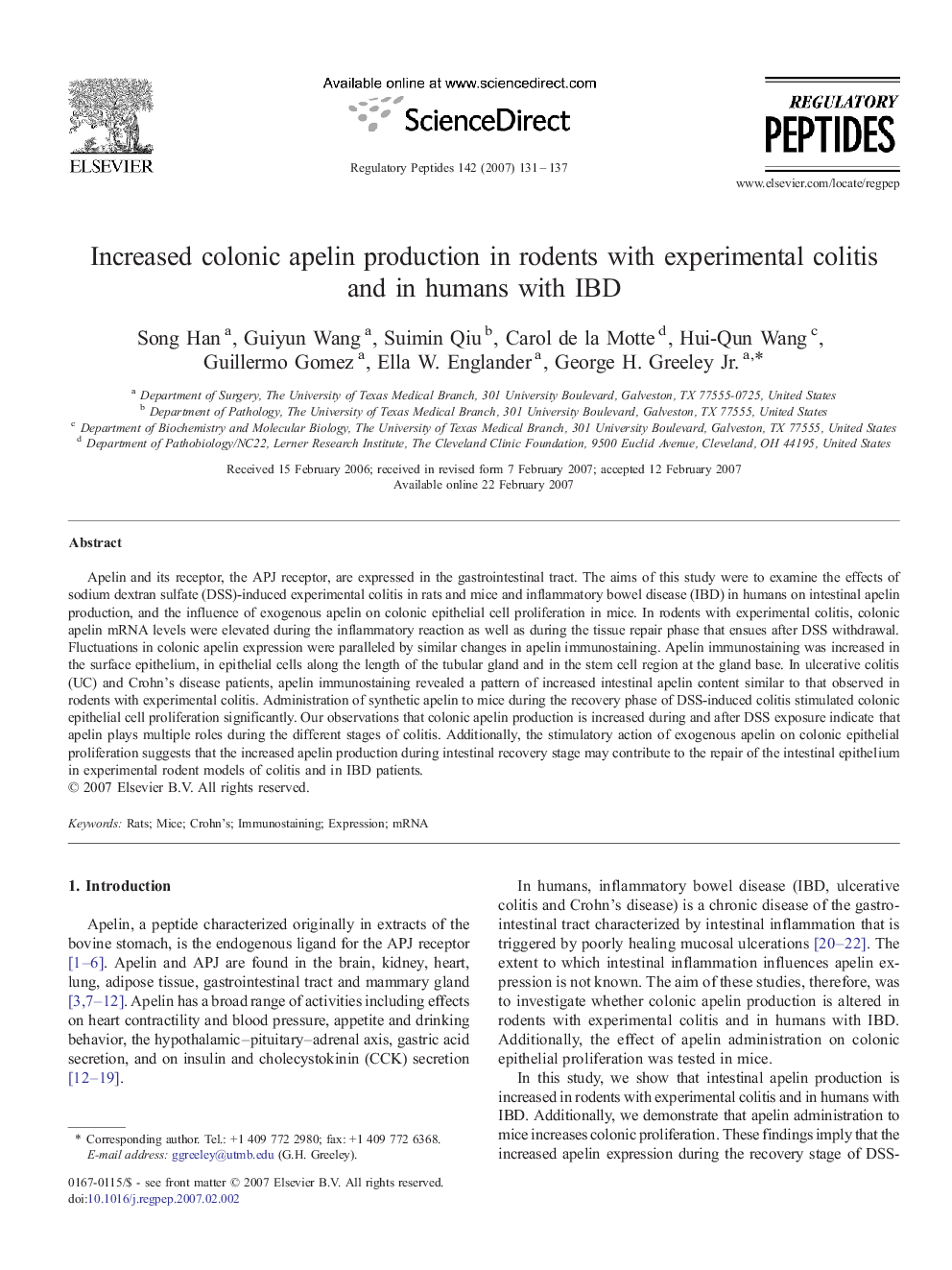| Article ID | Journal | Published Year | Pages | File Type |
|---|---|---|---|---|
| 2023151 | Regulatory Peptides | 2007 | 7 Pages |
Apelin and its receptor, the APJ receptor, are expressed in the gastrointestinal tract. The aims of this study were to examine the effects of sodium dextran sulfate (DSS)-induced experimental colitis in rats and mice and inflammatory bowel disease (IBD) in humans on intestinal apelin production, and the influence of exogenous apelin on colonic epithelial cell proliferation in mice. In rodents with experimental colitis, colonic apelin mRNA levels were elevated during the inflammatory reaction as well as during the tissue repair phase that ensues after DSS withdrawal. Fluctuations in colonic apelin expression were paralleled by similar changes in apelin immunostaining. Apelin immunostaining was increased in the surface epithelium, in epithelial cells along the length of the tubular gland and in the stem cell region at the gland base. In ulcerative colitis (UC) and Crohn's disease patients, apelin immunostaining revealed a pattern of increased intestinal apelin content similar to that observed in rodents with experimental colitis. Administration of synthetic apelin to mice during the recovery phase of DSS-induced colitis stimulated colonic epithelial cell proliferation significantly. Our observations that colonic apelin production is increased during and after DSS exposure indicate that apelin plays multiple roles during the different stages of colitis. Additionally, the stimulatory action of exogenous apelin on colonic epithelial proliferation suggests that the increased apelin production during intestinal recovery stage may contribute to the repair of the intestinal epithelium in experimental rodent models of colitis and in IBD patients.
